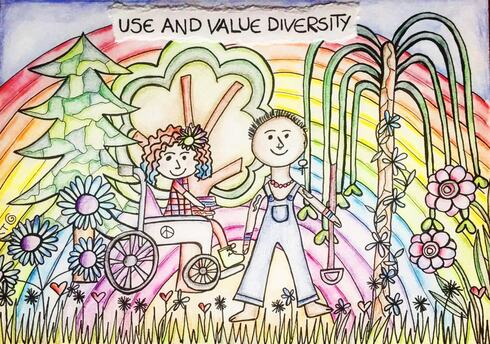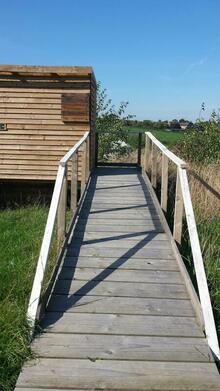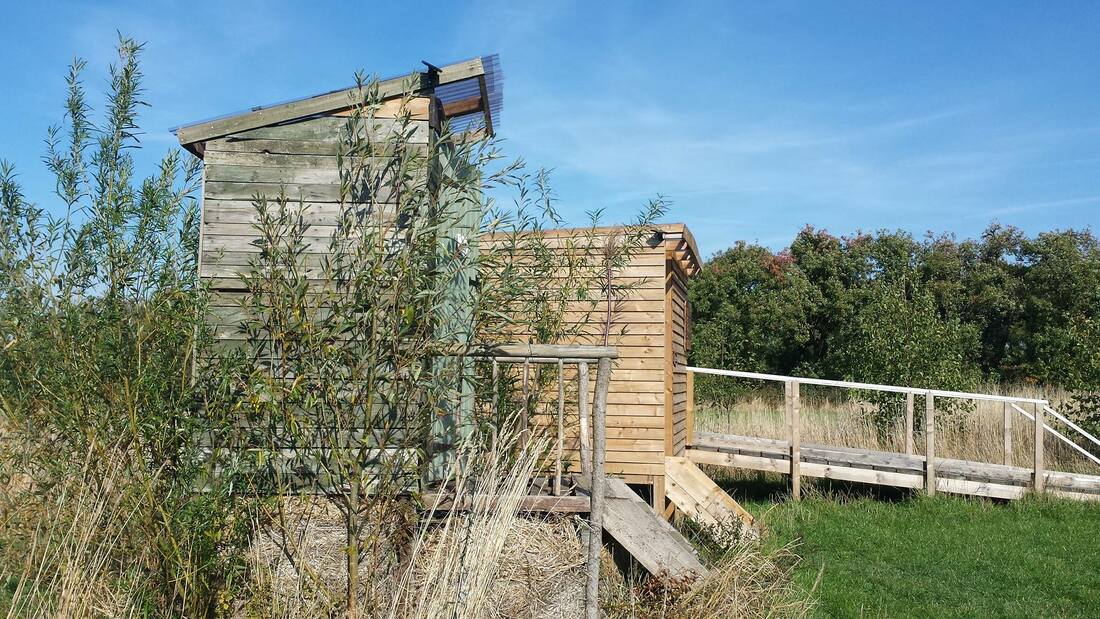- positives, challenges and suggestions for a more inclusive permaculture(This blog post is also available as a PDF here ) (Mainly UK-focused, though many aspects applicable to other countries too.) Since becoming very unwell and disabled nearly two years ago, I have learnt very quickly about what it means to be a person with disabilities attempting to navigate everyday life – and within that life, being unable to access many of the things I had previously taken for granted. Given that permaculture knowledge, experience, events and demonstration sites were previously a big part of my life, I have become increasingly aware of how difficult it would be for me to now access many of these things; in some cases it would be impossible. If I can’t participate in these events that are so important in my life, I wondered how many other people are also struggling to engage and connect with permaculture because of chronic illness and/or disability. As I started thinking about this in more depth, I set up a Facebook group with the intention of connecting with other people in the permaculture community with chronic illness and/or disability. (CI/D). (Recently, after some discussion in the Facebook group, it was decided that it made sense to add “neurodiversity” to the name and themes of the group too. The topic of neurodiversity inclusion isn’t discussed in this article, as the decision to add neurodiversity to the subject content in the Facebook group was made once I had started writing this post up. Many of the issues mentioned here – though not all of them – will also be relevant to neurodivergent people) If at this point you need more information about the definitions of chronic illness and disability then please see the links shared in "Designing Solutions", further on in this article. In addition to setting up the group, I went on to openly ask some questions about accessing permaculture for people with CI/D in several UK focused Facebook groups about permaculture and also via a post on the Permaculture Association (Britain) online noticeboard. People were invited to respond to the following questions, either in public in the group or by emailing me. In total, 47 people (mainly from the UK) responded in one of these ways. The aim of this information-gathering was to access reflections on experiences; it was a place to start a conversation rather than to undertake a structured research project. Here are the summaries and direct (anonymous) quotes of the responses to each question. (This article is quite lengthy, as I wanted to be able to include the voices of as many people as possible.) 1) Do you identify as having a chronic illness and/or disability? A diverse range of chronic illnesses and/or disabilities were included in the response to this question. These included physical illnesses, mental illnesses, learning disabilities (including dyslexia) and physical disabilities. Several people were keen to include neurodiversity as a disability too, as they pointed out that the education and benefits systems in the UK treat it as such. Many people also said that their illness and/or disability was a ‘hidden’ one, meaning that other people couldn’t immediately tell if the person with the chronic illness and/or disability had extra needs. A common theme evolved around many people feeling disabled by their environment, which frequently does not allow differently abled people to participate in life as they need to or would like to. Anyone has the potential to have additional needs and people with chronic illness and/or disability should be accepted to self define this, and not judged by others in doing so. Some people who responded didn’t identify as having a CI/D, though they had witnessed the experiences of people with CI/D accessing permaculture events and demonstration sites. 2) Do you have examples of where accessing permaculture knowledge, demonstration sites and events have been adapted to the needs of someone with a chronic illness and/or disability? This might be your own needs, or someone else you have observed being supported well. Several people mentioned great examples of how their needs relating to CI/D had been met at a variety of permaculture events and sites. These included:
There were also a couple of examples of places that had easily accessible compost toilets. Some statements made were:
3) Have you, or anybody else you have witnessed, been unable to access permaculture knowledge and/or demonstration sites and/or events because of your chronic illness and/or disability? Some statements that reflect general themes were:
The attitudes of other people Many people have health conditions where their symptoms are variable. Some found that the lack of understanding about this meant that they felt uncomfortable and judged if they couldn’t join in with an activity when the previous day they had been able to. Some examples given were:
Physical space
Event activities
4) What changes could be made in order for you, or other people with chronic illness and/or disability, to be able to further access permaculture knowledge and/or demonstration sites and/or events? General themes One very common theme emerging from the reflections people shared with me is that permaculture should be about designing systems that showcase inclusivity.
Attitudes
Physical space
Activities
Designing solutions Although every person with CI/D is an individual with unique experiences and needs, there are some common symptoms, issues and requirements for many folk. The following easily accessible resources are some favourites of mine, and can help you to understand more about these. The Mighty – online community of support and awareness raising about disability, disease and mental health. Stickman Communications – communicating about disability with style and humour Chronic Illness Inclusion Project Permaculture, Chronic Illness, Neurodiversity and Disability Facebook group Suggestions to improve access to permaculture knowledge, events and demonstration sites in general in the permaculture community/movement (These suggestions are also available as a PDF here )
Top tips for permaculture events/courses facilitators and permaculture demonstration sites (These top tips are also available as a PDF here)
This article and its suggestions have been designed to act as a starting point for further discussions and design work around access to permaculture for people with chronic illness and/or disability. Over the next few weeks, I will also be recording a spoken-voice version of the article content for my planned YouTube channel. I openly welcome feedback and /or suggestions for further blog posts/articles. Feel free to contact me by email or via my social media platforms.
7 Comments
Ann Pole
11/2/2019 05:15:47 pm
This is brilliant Kt. I've downloaded it and will give these concerns consideration when we get sorted with the LAND centre.
Reply
Kt
15/2/2019 10:36:43 am
HI Anne, thanks so much for your great feedback, it means a lot to me. I'm also going to be designing my new garden as a LAND centre, lets get our designs as accessible as possible, together. I'm thinking about ways of mapping which permaculture projects are already really accessible to folk. It would be great to have a directory I think. hmmm, more thinking time needed!
Reply
Clare Bonetree
14/2/2019 06:39:15 pm
This is great! Thank you very much for sharing it :-)
Reply
Kt
15/2/2019 10:37:26 am
Thanks for your feedback Clare, really appreciated
Reply
Jennie L
14/2/2019 09:07:21 pm
Thank you Kt for all of your hard work on this, very important, topic.
Reply
Kt
15/2/2019 10:38:32 am
Hey Jennie, thanks so much for your feedback, that and your continued support, really means a lot to me x
Reply
Leave a Reply. |
Welcome to my blog. Here I aim to share everyday examples of how permaculture can provide healing and regeneration for ourselves, our communities and our planet.
Search My BlogSign up for my monthly newsletter, Full Moon Flourish. Here I will be sharing updates about my creative permaculture projects, plus links to inspiring work from other women in permaculture.
Archives
May 2024
Categories
All
|



